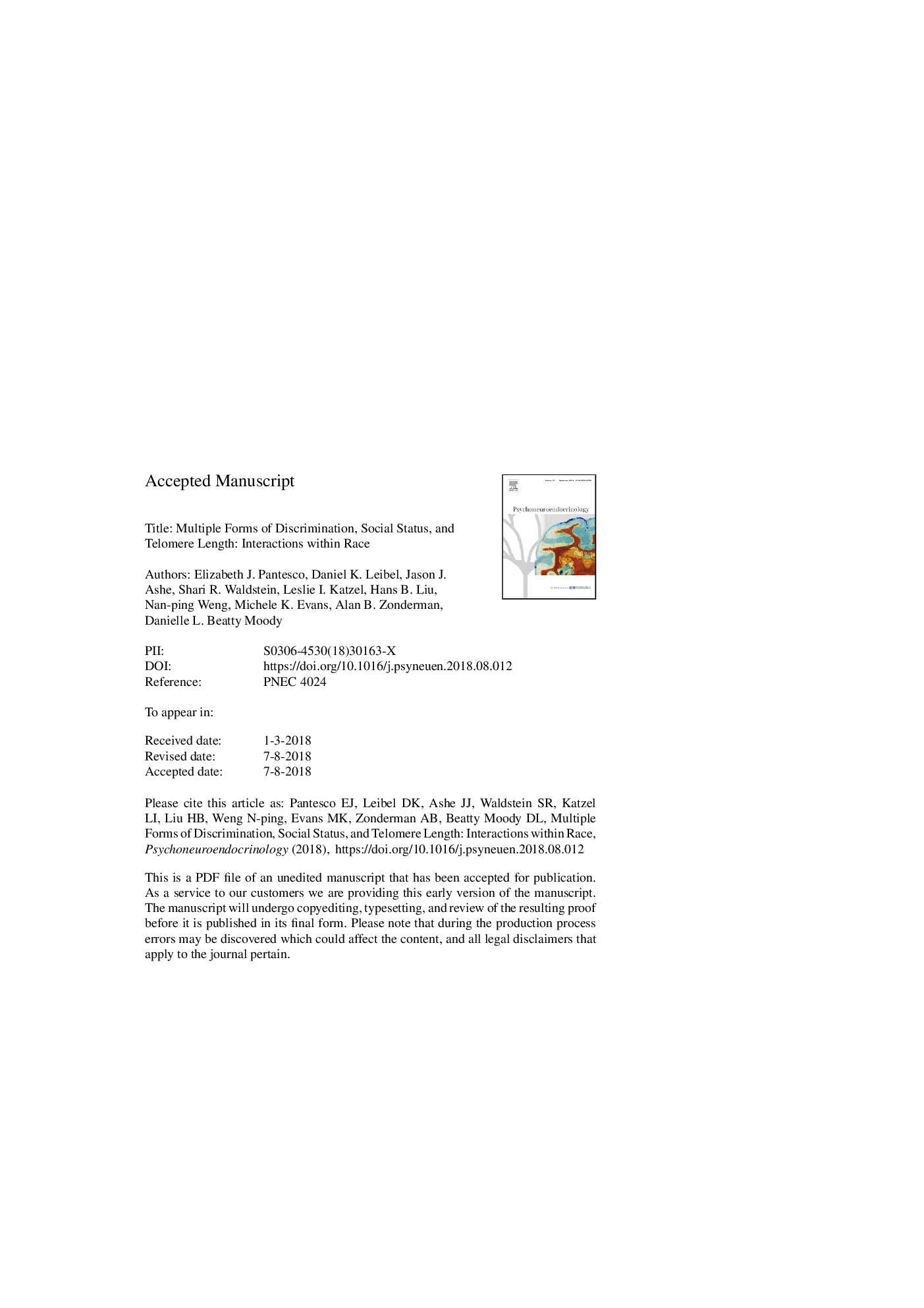| Article ID | Journal | Published Year | Pages | File Type |
|---|---|---|---|---|
| 11002044 | Psychoneuroendocrinology | 2018 | 42 Pages |
Abstract
Previous research has demonstrated inverse associations between experiences of interpersonal discrimination and telomere length, a marker of cellular aging. Here, we investigate within-race interactions between multiple indices of interpersonal discrimination and sociodemographic characteristics in relation to telomere length in African American and White adults. Participants were from the Healthy Aging in Neighborhoods of Diversity across the Life Span study (Baltimore, Maryland). Ages ranged from 30 to 64 years old and all self-identified as either African American (nâ=â176) or White (nâ=â165). Using linear regression, three patterns were observed within African Americans: (1) women reporting greater lifetime burden of discrimination (pâ=â.02), racial (pâ=â.03), or gender (pâ=â.01) discrimination; (2) those with higher socioeconomic status reporting greater lifetime burden (pâ=â.03) or racial discrimination (pâ=â.02); and (3) younger adults reporting greater exposure to multiple sources of discrimination (pâ=â.03) had shorter telomere length. Among Whites, younger and older men reporting greater racial discrimination had shorter and longer telomeres, respectively (pâ=â.02). Findings demonstrate within-race patterns of interpersonal discrimination and cellular aging, which may contribute to racial health disparities.
Related Topics
Life Sciences
Biochemistry, Genetics and Molecular Biology
Endocrinology
Authors
Elizabeth J. Pantesco, Daniel K. Leibel, Jason J. Ashe, Shari R. Waldstein, Leslie I. Katzel, Hans B. Liu, Nan-ping Weng, Michele K. Evans, Alan B. Zonderman, Danielle L. Beatty Moody,
